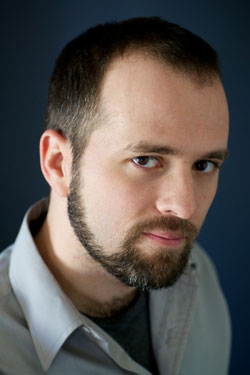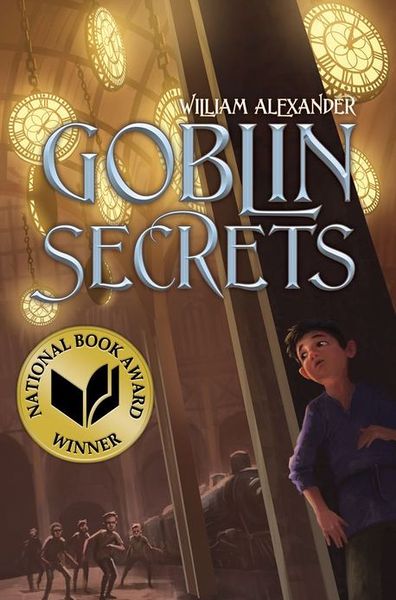Go to BooksMakeADifference.com magazine
|
 |
“Ten is double-digits, and therefore huge and important,” he says. “Twelve is a number of great folkloric significance. Eleven is stuck in between, unsure, just figuring things out—but still ambitious enough to want to be an astronaut. And I have never loved books more than I did then.”
The eleven-year-old version of Alexander loved consuming books, ravenously reading authors like Le Guin, Sir Arthur Conan Doyle, and Susan Cooper. Jump-starting his interest in the imagined, his mind regularly followed the lead of the fantastical. All the while, real life continued. There is no permanence to eleven. Children must grow up and, in the growing, real-world experiences also shape them into what they will ultimately become. Alexander became an award-winning fantasy writer, but along the way, and likely because of the way he went, he found himself comfortably navigating between both the real and the pretend.
As a child, Alexander lived in Miami, San Antonio, and Philadelphia. The most influential city was Philadelphia, and he acknowledges that the shifts in geography of his childhood homes likely impacted his decision to become a writer.
“Shifts in perspective put you on the outside, where you notice things you might not notice otherwise. Tolkien wrote in a letter to his son that ‘only a fish out of water has any inkling of water.’”
Moving from place to place as a child provided necessary outsider perspective, but Alexander also found perspective through the topics he explored as a college student. He studied folklore and theatre at Oberlin College and English at the University of Vermont. Those early adult studies deepened his exposure to the fantastical world of make-believe stories and stage performance while equipping him with the tools necessary to eventually write fantasy stories of his own.
Alexander always knew he wanted to be a writer but he says, “The knowledge came and went. I kept trying to do other things instead. My brief acting career was a blast, and I still miss theater, but I loved the storytelling more than the acting.”
...he now comfortably occupies imaginary places. |
The choice of storytelling affords Alexander an opportunity to build imaginary worlds big enough for all those possibilities. He can build theatres occupied by traveling troupes of acting goblins, he can present magic in masks or a river with emotion. His real-world experiences, including the geography of his present residence in Minnesota, collided fantastically in the storytelling of Goblin Secrets.
Alexander explains that the book contains the geography of “Zombay…a city split by a great big river, and like Minneapolis and St. Paul the two urban shores are very different from each other. The streets themselves are laid out according to completely different rules. My protagonist, Rownie, is one of the very few people who can move through either side of the city with equal ease. The Zombay River is also a character in its own right as well as an important piece of my imagined geography.”
A resident of the real twin cities, Alexander splits his writing time between bustling cafés and his home-office-turned-puppet-stage. He finds the landscape of Minnesota to be well-matched to his needs as a writer.
“Rain, fog, cold, and gloom are as perfect for writing books as they are for curling up and reading books,” he says. “Sunlit days are good for taking walks and puzzling through tangled plotlines—or so I’ve been told by people who thrive on sunlight.’”
Alexander is not a sunlight-dweller, in fact, he prefers writing in the dark. Huddled in the dimly-lit and heavily-shuttered room of his home office, the physical movement of the outside world fades away and imagined geography emerges.
“I prefer cave-like working conditions to watching the outside world,” he says, “I also keep the door closed, the lights dim, and headphones over my ears.”
When his office door is closed, the backstage of a puppet theater emerges: a fitting backdrop to the space where imagination thrives. A gift from his mother-in-law, the door-sized curtain, with smaller puppet-stage curtains in the center, stays dormant while he is working. The puppets, like Alexander’s stories, can only come to life when the door between the imagined and the real is opened.
Fittingly he says, “I might also cover up both door and puppet theater with a bookshelf that only swings aside when you tap the right book. I’m not sure what the right book will be, though. Probably Susan Cooper’s The Dark is Rising. Lots of hidden doors in that story. Shhhhh. Don’t tell anyone.”
Alexander’s travels started with the impactful fantasy writing he read as a child. Imaginary worlds became plausible and both figurative and literal doors opened at just the right times. The doors he chose to open and walk through have helped prepare him to become the writer he is today, who now tells those stories to other eleven-year-olds, anticipating the possibilities.
William Alexander is an adjunct professor at the Minneapolis College of Art and Design. His next book, Ghoulish Song, is scheduled for release March 5th.
Web: www.willalex.net and www.goblinsecrets.com
Twitter: @williealex Twitter.com/williealex
Buy: Goblin Secrets
Photo credit: Matthew Aronoff
Other National Book Award finalists:
Out of Reach by Carrie Arcos
Never Fall Down by Patricia McCormick
Endangered by Eliot Schrefer
Bomb: The Race to Build—and Steal—the World’s Most Dangerous Weapon by Steve Sheinkin
|


